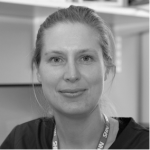by Kerstin Nothnagel, Postgraduate researcher and PhD student, Centre for Academic Primary Care, University of Bristol
This month, I had the privilege of attending the National Institute for Health and Care Research School for Primary Care Research (NIHR SPCR) Trainee event in Manchester, where I connected and collaborated with fellow SPCR researchers. The event was more than just an academic gathering—it was an inspiring opportunity to share insights and reflect on our work as a community.
A highlight of the event was the Co-Production, Equality, Diversity & Inclusion (CEDI) session, led by Patrick Nyikavaranda. This session was particularly significant for a few reasons. The purpose was to dive deep into understanding how our diverse experiences and backgrounds shape our research, with the aim of fostering a more inclusive research environment. In today’s globalized world, belonging is a crucial element. As researchers, the … Read more













